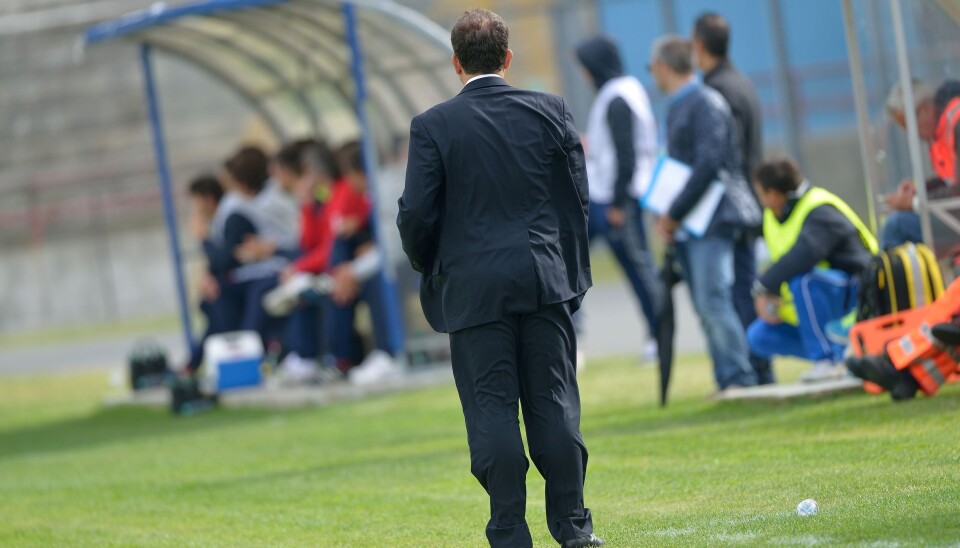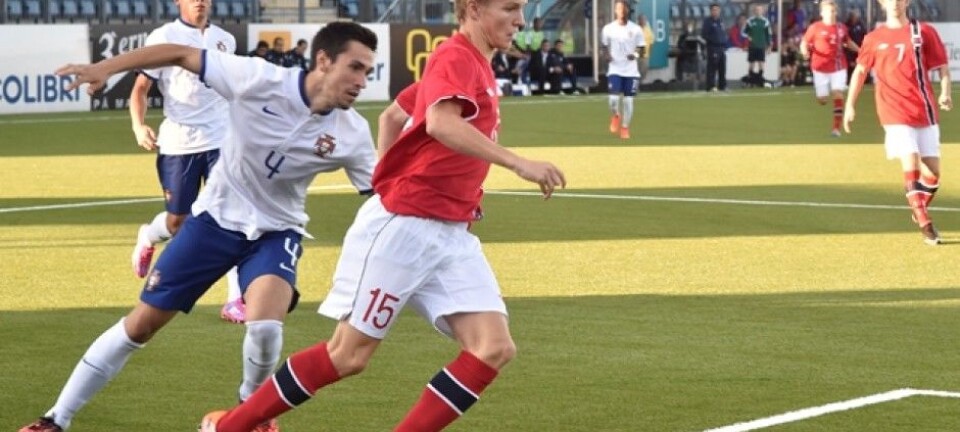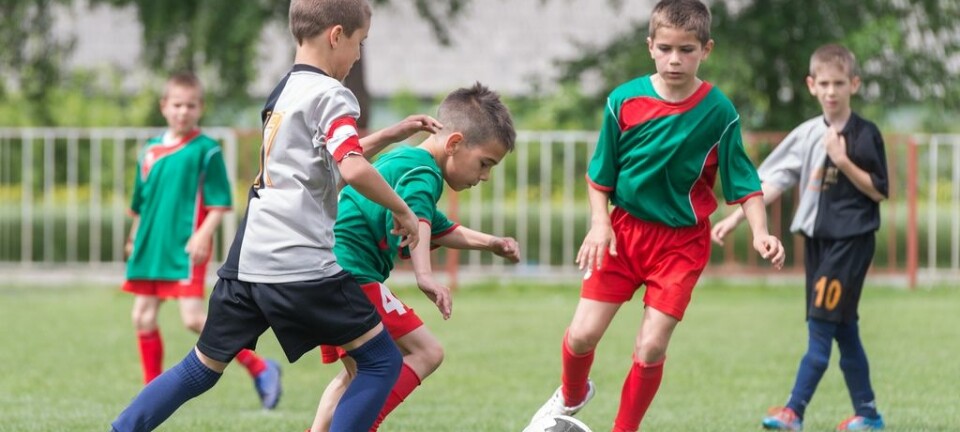This article was produced and financed by The Norwegian School of Sport Sciences

Coaches burn out in top-level sport
One in four top-level coaches suffers a high level of fatigue at the end of the season.
Denne artikkelen er over ti år gammel og kan inneholde utdatert informasjon.
Doctoral research fellow Marte Bentzen conducted four studies to investigate the issue of coaching burnout in top-level sport.
Top-level coaching is a demanding job which involves a lot of pressure and long working hours which combined with their passion for the sport and stress leads to an increased risk of burnout. The investigation of top-level coaches and their experiences of burnout is part of Bentzen's new doctoral study "Coaching Burnout in Top-level Sport".
The study found that as many as one in four coaches feel a high level of fatigue (an important symptom of burnout) at the end of the competitive season. "This is a significant number and an issue sports organizations and coaching education programs need to address to make sure that coaches can remain in their jobs for a long time," says Bentzen.
What causes burnout?
"Burnout is more than just feeling tired," says Bentzen. Burnout is a work related syndrome which develops gradually. The condition is characterized by feeling a high level of fatigue, blunted emotions and reduced performance as a coach. Coaches in the process of developing burnout syndrome experience negative symptoms both physically and mentally. This will both put a strain on the individual coaches and have a negative effect on their athletes and the organization in which they are employed.
An individual will rarely experience burnout without being very passionate about their job. "We have been studying the burnout syndrome from a traditional occupational perspective which focuses on workload and motivation," says Bentzen. As long as the coaches remain enthusiastic about their jobs, they can cope with the stress.
Top-level coaches are driven by their love for the sport; their job is a personal interest, their profession and a passion. Coaches run the risk of never feeling fully rested. While other professionals can leave their stressful job behind and go training, this is not a recreational activity for a coach.
An added and significant strain on top-level coaches are the practical challenges that lies within their organization. These include extensive traveling, limited delegation of responsibilities, internal conflicts, sports policies and lack of support. "Who is looking after the coaches," Bentzen asks. It can be compared to the emergency procedures on an aircraft which says to 'put on your own oxygen mask before assisting others'. If you do not look after yourself you will eventually not be able to help others.
Not dependent on success
Surprisingly, how the athletes performed did not influence the feeling of being burnt-out. "The studies did not find any statistical correlation between poor performance and fatigue in coaches," says Bentzen. "One of the qualitative studies produced an interesting finding: Coaches with excellent results internationally can also experience burnout. We should stress that excellent results is no guarantee for a high level of wellness in coaches.
Self-determination
Bentzen wanted to see if the self-determination theory could clarify the process of how an individual develops the burnout syndrome. The theory has helped to explain why a demanding and unsupportive working environment may lead to a higher degree of burnout in top-level coaches," says Bentzen.
To maintain the mental energy that is needed as a top-level coach, it is crucial for the working environment to support self-determination, challenge the coaches and allow them to apply their knowledge. In addition, it is important for the coaches to develop good working relationships.
The results showed that the degree of self-determined motivation, if the job was perceived as fun, interesting and rewarding, is vital. This type of motivation helped to prevent burnout. However, when work was not seen as enjoyable it contributed to a higher degree of burnout.
Other factors contributing to a higher degree of burnout included imbalance between work and family/personal life and reduced ability/possibility to get proper rest.
Balance
"We would like to recommend several measures that could help to prevent top-level coaches from being burnt-out," says Bentzen.
Coaches need to be educated on how to organize their working hours, set limits and how to maintain a healthy balance between their working life and personal life. They also need to be made aware of how they can care for their own well-being and maintain their energy levels through proper rest and recovery.
The educational programs should prepare the coaches for the organizational and administrative aspects of their profession. They should learn about decision-making processes, conflict management, how to delegate responsibilities and how sports organizations function as a workplace.
Bentzen would like sports organizations, as an employer, to be more supportive, help to limit the workload and make arrangements which make it easier for the coaches to get proper rest, both at home and when traveling for training camps and competitions. "The measures to improve the working conditions for the coaches should be adapted to accommodate the needs of the different sports," she adds.
Coach training
"The studies Marte Bentzen and her colleagues have conducted are very important for the sports community, particularly professional coaches," says Frank Abrahamsen, head of the coaching education program at the Norwegian School of Sport Sciences.
It is an exciting job that also has its disadvantages. Long working hours, lack of job security and performance objectives may lead to burnout.
The study could be a useful tool in preventing and addressing this issue. And, the Norwegian Olympic and Paralympic Committee and Confederation of Sports (NIF), schools and universities should include these findings in their educational programs.



































